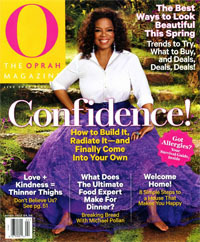Angela Joseph's Blog, page 27
September 28, 2013
Remember The Little Details
While on my walk this morning, I came across a couple staring at something on a tree branch. As I drew nearer, the woman pointed to the tree and said, “Isn’t it amazing how God puts so much detail into everything?” I peered at the tree to see what she was talking about, and there was a huge spider caught in a big web. I agreed with her that God is a God of details. Then I saw she had her phone out. “Did you get him?” I asked. “I sure did,” she replied. So I got out my phone and took two shots. See one of them here. 
As I walked away, the word “details” kept popping into my mind. I immediately thought of my writing. As fiction writers, it can be very easy for us to focus on getting our plot just right; working out the conflicts, all the little twists and turns and surprises, while ignoring the details. But its these little details that make the story come alive and make the reader feel she is in the story, not looking in from the outside. Let’s look at the paragraph below from The Memoirs of Cleopatra by Margaret George:
Warmth. Wind. Dancing blue waters and the sound of waves. I see, hear, feel them all still. I even taste the sting of the salt on my lips, where the fine, misty spray coats them. And closer even than that, the lulling, drowsy smell of my mother’s skin by my nose, where she holds me against her bosom …
Do you see, hear, feel and taste the details? That’s the kind of sensory experience you want to give your readers. This is not the same as clutter, which adds nothing to the story. If it feels cumbersome, it must go. But if everything fits into place, like the markings on a spider’s leg, then you are on to something. Like any craft, it takes practice, but eventually, you should get it just right.
———————————————————————————————–
I will be taking my book Women For All Seasons on a virtual book tour from October 7 – 18. I will also be giving away a copy of the book and downloadable excerpts to readers who visit the blogs and leave a comment. I will post all the details as the time draws nearer. Meanwhile, if you wish to jump ahead you can purchase a copy on Amazon from the link on your right, or from Smashwords at https://www.smashwords.com/books/view...
Related articles
 How to Write About a Place You’ve Never Been
How to Write About a Place You’ve Never Been
August 26, 2013
You Can Write And Still Be Healthy
This week I accepted a challenge by writing coach, Suzanne Lieurance. Suzanne threw out a challenge to members of the Working Writer’s Club to join her in adopting some healthy habits over the next four weeks. If you are a writer, you know how difficult it can be to find time for exercise. Even our nutrition suffers as we tend to snack while writing, or drink cups of coffee while we struggle to meet deadlines.
If you fall into any of these patterns, the following tips will help you observe healthy habits while you write .
1. Shop right. If you want to be a healthy writer, the first thing you need to do is go out and shop for some real food. Bypass the junk food and stock up on some fruits, veggies, eggs, meat, fish and whole grain breads. 
2. Prepare meals beforehand and store in the freezer so you won’t be tempted to snack. Make a few sandwiches – chicken, turkey, tuna – whatever you like, wrap and store in the fridge. That way you don’t have to worry about what you’re going to eat and you won’t be reaching for the potato chips or something like that. For your afternoon snack, you can make a smoothie and store it in the fridge, or try some strawberries with low-fat whipped cream.
3. Exercise. I know this sometimes sounds like a bad word, but you can find time to exercise. It doesn’t have to be for long blocks of time. In fact, if you find it difficult to tear yourself away from the computer, why not do it first thing in the morning? I went walking this morning and it always boosts my energy for the day and helps me think clearly. If you can’t do that, there are exercises you can do while sitting at your desk. I wrote a post on that sometime ago. You can read about it here: http://angelasfreelancewriting.com/fi....
So accept the challenge and come back and leave a comment on what you are doing and how it’s benefiting you. Happy writing!
Related articles
 8 Healthy Habits for Weight Loss
8 Healthy Habits for Weight Loss Healthy Snack Ideas from Chiquita
Healthy Snack Ideas from Chiquita Easy Healthy Habits
Easy Healthy Habits
August 4, 2013
So You Really Want To Be A Writer?
If you answered ‘yes’ to the above, you may want to watch this video first. What he shows in this video is funny, but so realistic. After you write The End, you have only just begun. You have to go through the blood, sweat and tears of EDITING!
Watch and enjoy!
July 27, 2013
Who Should Be Your Protagonist?
I am working on my second book in the Egypt series, and I have to confess this book is causing me some bother, not so much with the plot, or the setting or even the characterization, but with the protagonist. There seems to be some kind of competition going on between my protagonist and her sister, who is also a main character in the book.
Just to give you an idea of my dilemma, here is the plot in a nutshell. My protag Marva is a twenty-one year young woman who suffers major guilt feelings over having killed her father years ago on account of incest. She was never brought to trial, although the detective on the case suspected she was guilty. And she knew he suspected her. This happened in Book 1. In Book 2 she desperately wants to get the burden off her conscience by confessing to someone, but has no one to confess to. June is now 17, and Marva feels she is no longer needed in her sister’s life. Marva thinks her only solution lies in killing herself – something she attempted in Book 1.
Now this is where the competition arises. As the protag slips deeper into depression, June seems to take over, warning Marva not to confess to anyone as this would disrupt the comfortable new life they have made for themselves. June is beautiful, bright, vivacious and always part of a group. She would be an ideal YA protag. Marva, though attractive, is a loner, introverted and uncomfortable around others because of her guilt feelings.
I chose Marva to be the protagonist because, to my mind, the story centers around her. She has the most at stake. According to Characters, Emotion & Viewpoint by Nancy Kress, Marva seems to fit the profile of a villain protagonist, even though she is not a villain in this book. According to Nancy, the villain should be:
tenacious
a loner
resourceful
not loquacious and
idealistic – this, Ms. Kress says is the most important. Whatever she does, lie, steal or even kill, must be done in the service of her country, her family (as in Marva’s case) or for the sake of right.
Some time ago I featured a blog post by Yvonne Anderson, my friend and critique partner, on the subject of protagonists. Yvonne is the author of the Gannah series. You can read her post here: http://angelasfreelancewriting.com/y-is-for-ys-words/, and after you have read it leave a comment and let me know who you think deserves the star role – June or Marva.
Related articles

More on Female Protagonists
 Why Do Protagonists Have to Be Male?
Why Do Protagonists Have to Be Male? This Thing I Realized About My WIP
This Thing I Realized About My WIP What makes a protagonist?
What makes a protagonist?
June 30, 2013
Don’t Blame The Agent
 As I continue to research agents to query for Coming Out Of Egypt, I sometimes stop to read that agent’s blog to see what he/she might be looking for or what his/her pet peeve might be. It never ceases to amaze me that most of the agents make the same comments about why they reject someone’s query.
As I continue to research agents to query for Coming Out Of Egypt, I sometimes stop to read that agent’s blog to see what he/she might be looking for or what his/her pet peeve might be. It never ceases to amaze me that most of the agents make the same comments about why they reject someone’s query.
Some of the comments I see are:
1. Query addressed to the wrong agent. Now you might think that the agent could pass it on to the right person, but if they are very busy and harried they may not be able to do this. Also, it shows that the author did not take the time to research the agency properly to see who accepts what.
2. Misspelling the agent’s name. This is a no-no! How would you like it if someone misspelled your name, or called you by the wrong name. The agent probably thinks, if she misspelled my name she may misspell other things too.
3. Not following the guidelines. If they ask for a one-page synopsis, then please don’t send two pages, thinking more is better. If they only accept 75, 000 word manuscripts, don’t send them 80, 000. If they ask for the first three chapters, don’t leave them out. These may seem like nitpicking, but they are not, when you consider that agents receive hundreds of submissions a day. As great as your query may be, they won’t have the time to call you up and ask you for the missing pages.
4. Poorly-written queries. This may not be your fault. You may simply not know the first thing about crafting a query. Then learn. Attend writer’s conferences; take a course; join a critique group; read the agents’ blogs. Many of them mention that writers confuse the query with the synopsis. Consider your query your elevator pitch, what your book is about. This should not be more than three or four lines, according to one agent whose webinar I attended and who later requested my partial. Your synopsis is where you get to reveal the entire plot to the agent. When I say the entire plot, I mean the main plot, including how the story ends, not every little twist and turn. Then make sure you proofread your script, or better yet have another pair of eyes look at it for typos or grammatical errors.
Poorly-written opening page. One agent puts it this way. “Please, for the love of books, do not use a mirror in the opening pages to have your character describe what they look like.” Try to hook your reader/agent from the opening sentence. Another turn off for agents is beginning by describing scenery or the person waking up or starting with backstory.
Leaving out your contact information. This could be an oversight, but it can cost you dearly if your query showed promise and the agent wants to contact you. If you submit by email, make sure you use your primary email so the agent can reach you. If you sent it by snail mail, be sure to include your SASE.
Before you submit your query to an agent/publisher, you should first see yourself as a salesperson taking a sample of your product to a manager or purchaser. You should 1) Know that the company sells the kind of product you are marketing. 2) Make sure your sample is the best it can be. No smudges, parts missing, or not working right. 3) Make sure you explain as succinctly as possible what your product can do for that company. If you bear these points in mind when preparing your query, you should have a winner.
June 16, 2013
Do You Write Things Down?
I recently returned from a fourteen-day cruise to the Adriatic where I visited historical sites in Athens, Greece, Ephesus, Turkey, Dubrovnik, Croatia and Venice, Italy to name a few. On all of these trips, we revisited pages and pages of history in one or two hours of walking tours. Needless to say, I took hundreds of pictures and made some jottings in my little notebook, but when I returned home something very strange happened. In looking at some of the pictures, I couldn’t remember where they were taken. I asked my friend who accompanied me on the trip, “Do you remember where Achilleon’s palace is?”
Here I am in front of one of the gates of the Acropolis in Athens
“Do you think it could be in Corfu?”
She knitted her brow. “It could very well be, but I don’t remember what we did in Corfu.”
Neither could I. We burst out laughing. The only reason I could ascribe to that senior moment we seemed to have had, was Corfu was the last place we visited, and by then our brains must have reached saturation point with all the material we were fed over the past two weeks.
Achilleon's palace, dedicated to the god Achilles
This brings me to something I have learned about being a writer. You must write things down. As soon as they come to you. Don’t wait until you get in front of your computer. I have worked out plot points, scenery descriptions, even dialog in my mind, only to remember just a fragment of them when I sit down to write. And try as I might, the words never sound as beautiful or as poetic as they did in my mind.

The old Olympic stadium in Ephesus, Turkey.
So now, after my Corfu experience, I’m going to write things down as they occur to me. Those flashes of inspiration don’t hang around forever. You must grab them now, or consign them to the shredder of your mind.
How do you keep track of those bits of genius the muse throws your way? Leave a comment and let me know about it.
May 27, 2013
Who Else Wants A Compelling Headline/Title?
Every now and again I like to draw from the pool of expert writers and entrepreneurs on the net. This article is courtesy of Filbert Publishing. Make your writing sparkle, write killer queries, get published. Subscribe to Writing Etc., the free e-mag for freelancers and receive the e-book “Power Queries.” http://filbertpublishing.com
Enjoy!
~~~~~~~~~~~~~~~~~~~~~~~~~~~~~~~~~~~~~~~~~~~~~~~~~~~~~~~~~~~~~~~~~~~~~~~~~~~~~~~~~~~~~~~~~
Without a doubt, your headline is the most important part of your sales message. Many copywriters spend hours… days… weeks writing headline after headline, trying to come up with the one magic gem that’ll boost response to incredible levels.
Entire libraries can be filled with tips, tips, and techniques that’ll help you write stronger headlines. However I can provide you a brief overview of this complex subject.
As you begin writing, frame your mind around “benefits.” Benefits should be first and foremost in your mind whenever you write any sales message.
Forget your book. Forget your bio. Toss out any thought except these:
What will my book do for my reader?
What is the primary benefit my readers will receive when they read this?
Answer this question in a compelling way and you’ll sell books. Tons of ‘em.
That being said, I need to make one more thing very clear: You may not know what your primary benefit is right away. That’s why the best marketers test, test, and test some more. They’re also voracious researchers. More about that in a bit. But first, let’s talk testing.
Testing, although a fairly complex subject, can be broken down like this: Suppose you have two headline ideas. Love ‘em both. Can’t decide which to use.
Well, use ‘em both. Send half your list to one sales letter using one headline, the other half to the other headline. The headline that pulls in the most orders will become the headline you use. Rather simple, eh?
Ok. I admit it. This is a grossly simplified version of testing, but it works. You can tweak this method and keep testing various ads. And even when you have a clear winner, you’ll want to keep tweaking your ad, honing your headline, you never want an ad to become stale. Just keep tweaking and testing and your sales will steadily climb. But I’m getting a little ahead of myself here. Back to writing headlines.
I mentioned earlier that great copywriters are voracious researchers. This is true because as you get immersed in your book, you’ll sometimes lose sight of your audience. You know a ton about your subject. In fact, you’re probably the resident expert. Such an expert, in fact, that it’s likely you’ve become slightly myopic about your reader.
A basic mistake book marketers make is assuming that they resemble their readership. Think about it for a moment. You’ve spend (sometimes) years researching a subject. As you progress through the writing process of your book, this information literally steeps into your blood cells. It becomes a part of who you are.
Meanwhile, your potential readers are padoodling through their lives, in all likelihood not giving you or your book, or (sometimes) your subject a second thought. In other words, while you’re immersing yourself in your subject matter, your potential reader is knee deep, concerned about themselves in their own life, their own challenges, their own routine.
While you’re entire world view is shifting to accommodate this new knowledge you’re acquiring, your potential readership isn’t. This means that information you now view as “common knowledge” is anything but. You’re now viewing the world through a new set of eyes, while your potential audience probably isn’t.
What does all this mean to your internet sales page?
Everything.
After you’ve written your book, got it published, and it’s now available for sale, you must once again become the person you were before you started writing. You have to somehow plug into the psyche of your reader and pull their emotional strings.
You need to acknowledge your expertise while still viewing the world through your reader’s eyes. And your sales page must reflect this. You need to know your audience inside and out. You need to understand what makes them tick. What keeps them up at night? What are their fondest dreams? What do they desire above all else?
Your headline must instantly connect with your reader and address these issues.
You get to know your audience in this way by reading what they read. Watch what they watch. Speak their language. Talk to them. Surf to their favorite websites. Ask what they want. Then GIVE IT TO THEM. Know them inside and out. Once you do this, your headline will be closer to the mark… but you’ll still need to test, test, and test some more. Does all this sound like work? Of course it does.
Marketing isn’t for the faint hearted. In fact, most authors don’t give this information a second thought, instead relying on something outside of themselves to sell their book without any effort.
This sounds somewhat depressing, but it’s good news for you. Because those who apply a little effort into marketing stand a much better chance at success.
So, let’s get back to it.
~~~~~
April 13, 2013
Do You Ever Feel Like Giving Up?
I received a very distressing e-mail from one of my writer friends and a member of my critique group the other day. She has written and published a series of three books so far and is working on the fourth, but she doesn’t seem to have much enthusiasm for it. My friend is an excellent writer and she has helped me a lot in my development as a writer, so when I read that message, I felt an ache inside. For her, for myself and for all the authors having to deal with rejections and little or no advance.
My friend published the Gannah series with a traditional publisher, who doesn’t pay any advance and does not assist with publicity. Therefore, she is left to handle all the marketing herself and as a relatively new author, book sales are slow. Not an encouraging picture, is it? In today’s publishing world where closures and mergers are the order of the day, and agents only seem to accept queries by referral only, new authors are having a hard time cracking the proverbial glass ceiling.
However, every now and again I come across a blog post that gives me a bit of hope. Julie Isaac, author and book coach, whom I follow on Twitter, wrote about Dr. Richard Carlson, now famous author of Don’t Sweat The Small Stuff. One evening, Dr. Carlson was discussing with his wife that he was thinking of quitting writing because he had received such a small advance on his book, You Can Be Happy, No Matter What, when the phone rang. It was Oprah’s producer calling to say that she was just in their library looking for a book on stress management when the book fell off the shelf and hit her in the head. (If I wrote that in one of my novels you would say it was contrived, wouldn’t you?)
But anyway, the lady wanted to know if Dr. Carlson could fly out the next day to be on the Oprah show. And the rest, as they say, is history. Don’t Sweat The Small Stuff has sold over 25 million copies. What are the chances of your book falling off a shelf and hitting Oprah’s producer in the head? The same as lightning striking on a clear, sunny day. But if you don’t give into discouragement, doubt and fear and keep on writing, you can eventually succeed in the writing business. Don’t give up!
March 31, 2013
Let’s Talk About Your About Page
Have you seriously thought about your About page? Are you happy with it? Is it drawing the readers you hope to attract? If you answer no to any of these questions, maybe you need to go back and take another look at this important page on your site.
Consider your About page as your sales copy. It is what sells you to your readers, your target market. Once you know who they are you should address them with the proper tone and content. So here are some facts to consider:
1. Tell them who you are – your name and your credentials. Whether you write in first or third person depends on the tone of your site. First person tends to be more informal.
2. Show them who you are – You are not a dog, a cat or a flower. As long as you are a human being you should have a photo so people know who they are dealing with.
3. KISS – By this I mean Keep it Short and Simple. Write in simple, concise sentences. Readers don’t have much time to stay on any one site.
4. Infuse your values – Let your readers know what makes you tick, what brought you to this point. It doesn’t have to be an essay, just a few short, simple lines.
5. Include your social media – Let your readers know how they can connect with you on Facebook etc. That way they get to know more about you.
6. Have a call to action – What do you want your readers to do after they have read about you? Invite them to browse your online store, subscribe to your blog or visit your Amazon page.
7. Toot your horn – Potential clients want to know what makes you an expert. Any certificates, honorable mentions, awards etc. should be mentioned on your About page.
I did a major overhaul to my About page and am still in the process of tweaking it. I think it’s still too long and wordy. Leave a comment and let me know what you think. Also, if you post your website URL, I’ll check out your page as well.
March 23, 2013
10 Important Websites For Writers

As writers we are always researching to find information that will help us improve our writing skills and market ourselves. There are many good websites for writers, some of which I subscribe to and receive regular updates from them in my mailbox. I have been greatly helped by some of them and thought I would pass on the information to you. I hope the following list will be helpful:
1. American Writers and Artists Inc. (AWAI)
This site offers excellent courses – live as well as virtual – in copywriting, photography, travel writing and freelance writing in general. Once you sign up for one of their courses you get their newsletter with up to date information on their conferences as well as other ways to build your business.
2. Bloggerlinkup.com
If you are looking for ways to link up with other bloggers either by posting to their blogs or having them post to yours, this site is a great way to do so. Through the site you can also request sources for interviews and reviews, announce your giveaways, contests and the like. A great resource for bloggers.
3. BookDaily.com
This is a site I recently came across. On this site writers get to post their profile, the title of their book, a short summary and the first chapter of their book and it is seen by visitors to the site. If you want advanced promotion where your information is sent by email to their subscribers, you pay a fee.
4. Book Buzzr.
What better way to buzz your book than by posting regular tweets to your followers? Book Buzzr allows you to do that and more, and best of all most of it is free. When you use the look inside feature, your readers get to read an excerpt from your book on your site or on Book Buzzr.
5. Funds For Writers
This site is managed by Hope Clark, writer and editor, and features articles on freelance and fiction writing as well as a listing of contests, markets, grants and retreats. It has been listed by Writer’s Digest among the 101 best websites for writers.
6. Freelance Writing Jobs
As the name suggests, this site gives a listing of writing jobs, both local and remote. It also gives valuable writing tips and encouragement to writers.
7. Mediabistro.com
No serious freelance writer should be without a membership to this site. In addition to offering some of the best online freelance writing courses available, you can also receive health and dental insurance at reduced premiums, How-to-Pitch articles, tax services and a host of other benefits. The How-to-Pitch articles are one of my favorite features of the site.
8. The Working Writers Club
This is a site where writers get to meet each other virtually, exchange ideas and learn more about the business of freelance writing. I am a member of this group and have benefited greatly from interacting with other members, from the daily hints and tips put out by the coach, Suzanne Lieurance and from the monthly teleclass. This is a good and inexpensive way to learn more about improving yourself as a freelance writer.
9. Writer Beware Blogs
There are so many scams out there nowadays and writers, because they generally operate as solopreneurs, are very vulnerable to these scam artists. This is why you need to visit Writer Beware Blogs to acquaint yourself with the many pitfalls that unsuspecting writers sometimes get themselves into.
10. Writer’s Digest
This post would not be complete without a mention of this giant among writers’ resources. With articles from top notch agents and experts in the business, writing materials, conferences and contests, Writer’s Digest delivers again and again.
So, there you have it. The Top Ten, if you want to call it that. I am sure you have your favorite websites that you frequent. Please drop me a line and let me know, or if any of the above have been especially helpful to you, I would be happy to know.




